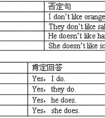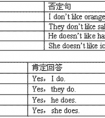Several days ago, while I got online, my cousin’s QQ head popped out(弹出). We hadn’t seen each other for a few months, so I decided to start a talk with her.-八年级英语
题文
| Several days ago, while I got online, my cousin’s QQ head popped out(弹出). We hadn’t seen each other for a few months, so I decided to start a talk with her. My cousin is studying in a college of our city. Her hobby is surfing the Internet. Every time I am on the computer, she is always online, listening to music or decorating her “personal space”. I like visiting her space. It’s creative and modern. I can’t design such a colorful web page as hers. When I read the sentences she sent to me, I noticed that the Chinese characters had been changed, but I could still guess their meanings. I took a strong interest in this type of new characters. Further watching made me realize that they added some common Chinese radicals(部首) to the original characters, making them more vivid(生动), a little like Japanese. My cousin said this gives new life to the Chinese language and culture. It is true that the Internet has reinvented our language, but I still can’t accept this new change. Some Chinese characters have meanings in the shapes; one shouldn’t superficially (浅薄地)change them by adding an additional radical. So I advised my cousin to change her new idea and use standard characters to communicate. And she willingly accepted my advice. 小题1:The author’s cousin was a(n) ________.
|
答案
小题1:D 小题2:C 小题3:A 小题4:B 小题5:D |
试题分析:这篇短文主要介绍了我和我的表妹在网上交流时发现汉字已经改变了。虽然这种改变使汉语更生动但我对这种改变不赞同。最后表妹接受了我的意见。 小题1:细节理解题。根据短文第一段My cousin is studying in a college of our city.描述我的表妹在我们市的大学学习,可知是个学生,故选D。 小题2:细节理解题。根据第一段I like visiting her space. It’s creative and modern.描述,我喜欢拜访她的空间,那是有创意和现代的。故选C。 小题3:段意总结题。根据第二段内容当我读她发给我句子时,我注意到汉字已经改变了,但我还能猜他们的意思。我对这种类型产生了强烈的兴趣。进一步一看,我意识到他们为新颖的语言角色添加了一些常见的中国部首,使他们更生动,这有点像日语。我表哥说这给中国语言和文化新的生命。结合选项,故选A。 小题4:词义猜测题。根据第二段主要内容,可知因特网真的改良了我们的语言。故选B 小题5:是非判断题。根据最后一段可知我不喜欢这种变化,故选D。 |
据专家权威分析,试题“Several days ago, while I got online, my cousin’s QQ head p..”主要考查你对 实义动词,实义动词的单数第三人称形式,动词短语 等考点的理解。关于这些考点的“档案”如下:
实义动词实义动词的单数第三人称形式动词短语
考点名称:实义动词
- 实意动词:
即行为动词,表示动作的动词。实义动词与系动词是相对的,能独立用作谓语。
它分为及物动词和不及物动词两种:
及物动词是指后面要求有直接宾语的动词;
不及物动词指后面不需要跟宾语的动词。 实意动词使用方法:
及物动词
后面必须跟宾语意义才完整的实义动词,叫做及物动词(transitive verb)。如:
I believe that the committee will consider our suggestion.我相信委员会将会考虑我们的建议。
“How long can I keep the book ?”Harry asked.哈里问:“这本书我可以借多久?”
Dr. Bethune set us a good example. 白求恩大夫给我们树立了好榜样。
Crude oil contains many useful substances.原油含有许多有用的物质。
不及物动词
本身意义完整后面不须跟宾语的实义动词,叫做不及物动词(intransitive verb)。如:
Birds fly.鸟会飞。
It happened in June 1932.这件事发生于一九三二年六月。
My watch stopped.我的表停了。
She spoke at the meeting yesterday evening. 她在昨天晚上的会上发了言。
兼作及物动词和不及物动词
英语里有不少实义动词可以兼作及物动词和不及物动词。这样的动词又有两种不同的情况
a)兼作及物动词和不及物动词时,意义不变。试比较:
Shall I begin at once?我可以立刻开始吗?(begin作不及物动词)
She began working as a librarian after she left school.她毕业后当图书馆管理员。(began作及物动词)
When did they leave Chicago?他们是什么时候离开芝加哥的?(leave 作及物动词)
They left last week. 他们是上周离开的。(left 作不及物动词)
b)兼作及物动词和不及物动词时,有时意义不尽相同。如:
Wash your hands before meals.饭前要洗手。
Does this cloth wash well? 这布经得起洗吗?- 英汉实意动词用法比较:
与汉语的比较,有时英语动词的及物和不及物的用法,与汉语的用法不一样,请注意下列两种情况:
a)有的动词在英语里只能用作不及物动词,而汉语则可用作及物动词,如arrive到达,agree同意,listen听。英语里这些动词后面常接介词。如:
We arrived at the railway station at noon.
我们于中午到达火车站。(at不能省去)
(比较:We reached the railway station at noon.)
- 最新内容
- 相关内容
- 网友推荐
- 图文推荐
| [家长教育] 孩子为什么会和父母感情疏离? (2019-07-14) |
| [教师分享] 给远方姐姐的一封信 (2018-11-07) |
| [教师分享] 伸缩门 (2018-11-07) |
| [教师分享] 回家乡 (2018-11-07) |
| [教师分享] 是风味也是人间 (2018-11-07) |
| [教师分享] 一句格言的启示 (2018-11-07) |
| [教师分享] 无规矩不成方圆 (2018-11-07) |
| [教师分享] 第十届全国教育名家论坛有感(二) (2018-11-07) |
| [教师分享] 贪玩的小狗 (2018-11-07) |
| [教师分享] 未命名文章 (2018-11-07) |


![How much does it ______ to fly from Yancheng to Hainan Island?[ ]A. cost B. payC. spend D. take-七年级英语](http://www.00-edu.com/d/file/ks/4/2/shiyidongci/2020-01-05/small7dcf2f05998de63e10cc3629787031c81578210087.png)

![He always _____TV in the evening. He _____ listening to the radio. [ ]A. watch, don't like B. watches, doesn't like C. watching, don't like D. watch, do-七年级英语](http://www.00-edu.com/d/file/ks/4/2/shiyidongci/2020-01-05/small45d599b4a60b84e61cec210bfbf051f51578214524.png)
![I'd rather ___ to the Mcdonald's Restaurant because I like to listen to quiet music.[ ]A. to go B. going C. go D. went-八年级英语](http://www.00-edu.com/d/file/ks/4/2/shiyidongci/2020-01-05/small1767bba1727fef2c035c53dcbd9bc20e1578209517.png)
